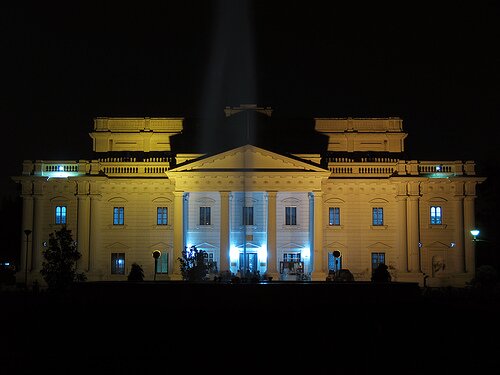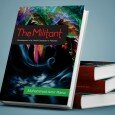By Waqar Gillani –
Cultural capital of Pakistan fighting commercialization and priorities to get backs to revive its glorious literary and cultural environment
With the haphazardly increasing size and growing population of the cultural capital of Pakistan – Lahore – the traditions and colours of the city are fading away. Libraries are less populated, literary circles are heading towards gradual elimination by going in the hands of individuals and getting fewer attentions.
The city, with its more than 10 million estimated permanent inhabitants now, has a history of remaining an icon to promote literature, culture, and art. It was known as a city of gardens and libraries at a time. Now, the giant of commercialization, with large scale economical interests, its demography and environment are changing day by day affecting its cultural and literary life in different ways.
“The character of the city has changed a lot. At a time it was a literary city but now commercialization has taken over,” Intizar Hussain, celebrated literary figure of the country, who lives in Lahore, observes. He says literary activities and reading culture are not seen promoted that day way now. “This is a gradual change. This continued happening when nobody noticed of converting the surroundings of Pak Tea House into tyre shops,” he laments, adding, “Nobody realized the value and importance of this place which became hub of literary activities and led to creation of so many literatures through the writers and intellectuals use to regularly sit at that place at that time.”
“Government’s interests and priorities have changed too. Mostly, this culture of reading and creating literature is surviving individually,” he notes. Hussain feels that libraries have started getting rush and officially set up forums and organizations are not playing that much role. The things are not integrated now.
Recently, the sitting Pakistan Muslim League Nawaz (PMLN) rule in the Punjab has made an attempt to revive Pak Tea House on certain figures close to the ruling elite, while renovating and refurnishing that old and historic place of literary sittings near Anar Kali Bazaar spending huge money. The place, given on a contract to a reputed catering service provider of the city, has failed to gain that old attention, helping young students from nearby educational institutions to have a good meeting point rather. One feels new Pak Tea House with revised menu not less than a small standard restaurant.
Salima Hashmi, celebrated artist and member of Lahore Conservation Committee, recalled there was a time when Lahore was centre of literary and cultural activities in a great way. Artistic, musical and literary circles and people were well connected to one another and at one time you would indulge in conversations and in arguments with tolerance and while remaining on opposite positions patiently listening to one another. “People used to remain friends and respect each other’s opposite view. Libraries were well attended too,” she said, adding, “However, I still believe, in term of culture and literature, the city is still rich in term of number of such people but the forums are less and quality is compromised at public and organizational level. It is paradoxical situation.”
She recalls there were times when the city’s libraries were well attended. “There were also libraries of the British Council and American Consulate which were open for public.” But now the situation is poor, she said, while citing unattended declining environment and condition of Punjab Public Library, a great source of information for people having historic records and documents. “Though advanced technology, computer and internet have changed the things but I still believe libraries are greater, authentic and quality source of getting information.”
Another reason of the decline in the literary environment of the city is the change of priorities for official patronization, she felt. Writers have become sycophants and pay less attention to quality creations and work for individuals and private groups. And sometimes, these individuals and groups do the things wonderfully, she observed.
The number of people going to libraries is reducing day by day. The literary circles are converting into small individual groups without any proper patronization. On the other side, the city is not going through the changes and decline in traditions but physically too. Once the roads of the city named after historic literary figures and the English literary class are also gradually being changed. This is an attempt to change the history of the city, according to many people.
Sarwat Ali, senior cultural critic and teacher at National College of Arts (NCA), said the expanding landscape of Lahore has also changed literary and cultural life of the city. “Due to the spread of the city, many activities have also gone out of the city in suburbs. Also, the number of libraries has gone down because of technological advancements. Previously, library was the only showcase but now internet has opened different avenues for students to study and do research.”
“The existing condition of libraries is also not very good. Due to the change in the landscape, the impact of literary circles is becoming less. Pak Tea House is restored but it is unable to create a literary impact,” he said, adding that reading culture is not that popular now which has detrimental impact and it will curtail freedoms of expression and intellect. “We are moving to medieval set up gradually this way and this can end in limiting and narrowing down the discourse. We are becoming a shallow society,” he feared.
Internet and easy approaches towards literature and education are also lowering the standards. The solution lies in investing more in education and promoting the culture of reading and writing, Sarwat suggested.
The primary reason that aggravates the situation is the influence of the internet and how it is the single most important factor in determining the future of libraries, anywhere in the world. The internet feeds our fast-paced lives and the need for condensed, to-the-point information increases. Libraries have been reduced to mainly scholarly, academic research workshops.
The complaint that libraries are no longer functional in Lahore remains redundant. The solution, if any, is not merely to fulfill what is lacking; it is to reinvent and revitalize the concept of a library entirely. One can’t say that book reading is out of fashion, they observed.
In the recent past, Oxford Mobile Bookshop, a project by Oxford University Press Pakistan, also started mobile bookshop located in a bus going from one place to another – usually college campuses and parks – to highlight the reading culture aiming to attract people. The titles in the bookshop normally cater to young children and university students. While, sometimes, the education expos and the book fairs held mostly always have a throng of people milling around.
“The issue is not of change shape of the trends and environment of the city but thinking how to increase quality and patronize literary and cultural activities in a better way,” Ms Hashmi maintained, adding, “Currently, official patronage is totally missing.” Book fairs, literary festivals, musical conferences, performing art shows are alive just because of individuals and private groups and the government’s role is missing. The festivity of Basant is totally dead sadly.
“Lahore Lahore Nai Aay but Lahori is still Lahori,” she said, adding, “What is needed is an official commitment and kick.”
![]() The writer is a journalist based in Lahore. He tweets @waqargillani
The writer is a journalist based in Lahore. He tweets @waqargillani































































































